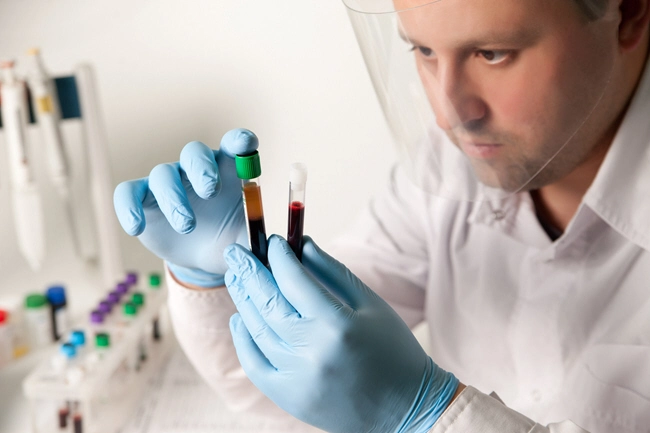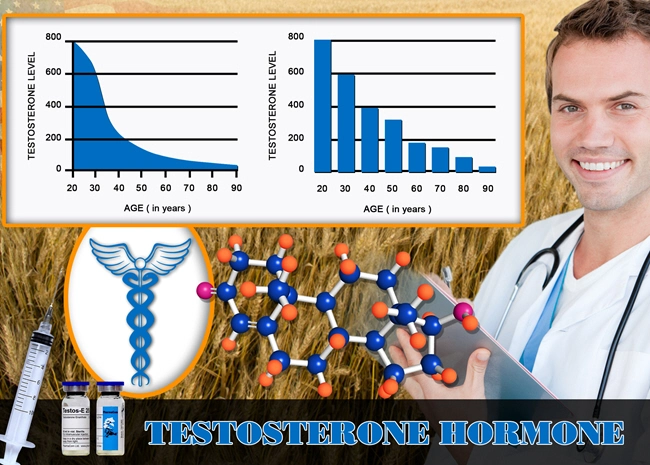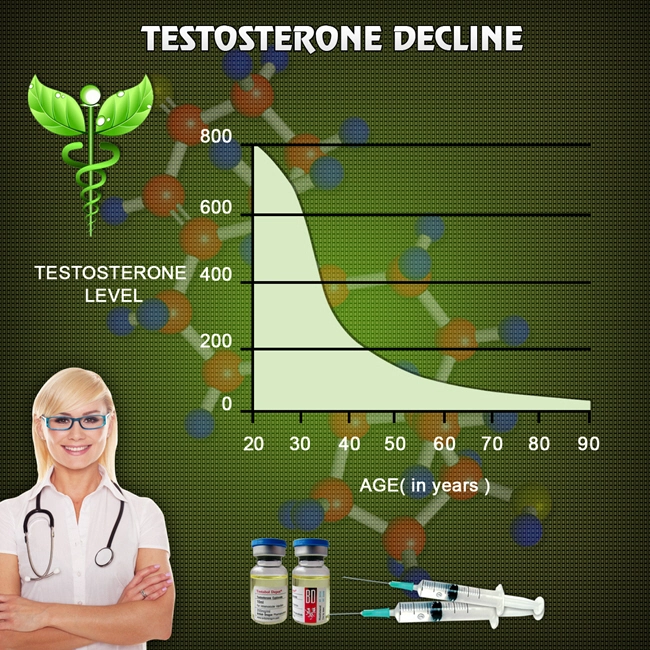
Video Link: https://vimeo.com/285162330
Video Download: Click Here To Download Video
Video Stream: Click Here To Stream Video
Recent research has established a link between reduced testosterone and a lack of vitamin B6. Here's why: a lack of B6 causes elevated estrogen, which is a feminine hormone that wreaks havoc on a man's testosterone. At our clinic, we offer the most efficient, safe, cutting-edge Testosterone Replacement Therapy (TRT) that is available.
Our testosterone treatment regimens go to work to raise your testosterone to a normal level, which in and of itself delivers benefits like skyrocketing energy, better sleep, relief from nagging joint aches, and an all-around more optimistic outlook.
But we don't stop with TRT. In addition to our treatment, we also recommend nutritional changes, fitness routines, stress reduction methods, and nutritional supplements like vitamin B6.
In the past decade, the world of nutritional supplements has been rocked by a wave of exciting new breakthroughs, seemingly one after another.
Many powerful and efficient supplements have been introduced, or have finally come into the public's awareness: astaxanthin, resveratrol, glutathione, and more...much more that are living up to their promise and delivering results...real results...in the lives of countless people.
This trend is exciting, and just beginning. Research scientists are always making more discoveries, and are without a doubt on the verge of even more significant findings that promise to skyrocket health benefits to a far higher level than could be imagined.
But Don't Neglect the Basics
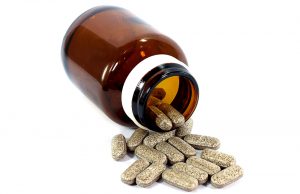 Any construction of a new building must be built on a firm foundation, and your body is no different. To obtain the maximum benefits of these new supplements, your foundation needs to be in place.
Any construction of a new building must be built on a firm foundation, and your body is no different. To obtain the maximum benefits of these new supplements, your foundation needs to be in place.
This means proper nutrition, and supplements that have withstood the test of time, like vitamin B6.
Vitamin B6 is also known for its biologically active form: pyridoxal phosphate (and also in the form of pyridoxine, pyridoxamine, pyridoxal, and several other variants). B6 is a naturally occurring nutrient that is utterly indispensable to human health and well-being.
It is a safe vitamin, since it is water-soluble, which means that it can’t be stored in the fat tissues of the human body. Any excess B6, beyond what the body can use immediately, is flushed away shortly after ingestion.
The Body Needs a Constant Resupply of Vitamin B6
In 2005, the U.S. Department of Agriculture (USDA) found that 14% of Americans have an inadequate intake of vitamin B6. Unfortunately, the body can’t manufacture its supply of B6. Since we need this vital nutrient to stay healthy, we need an external source of B6, and we must consume it on a regular and continual basis.
In spite of its importance, vitamin B6 does not get much respect, since it is taken for granted. It has a positive effect on more than 60 proteins in your body, including those that are important for your heart, nervous system, and blood cell production.
What is Vitamin B6?
Vitamin B6 is one of the eight “B complex” vitamins and, like all of the other members of this complex, it helps the body convert our food into glucose.
This is necessary for our energy production since every cell in our body uses glucose as fuel.
Also, Vitamin B6 also allows us to maintain the proper and healthy functioning of our liver, our skin, our hair, our eyes, and other organs as well. Here are a few other benefits that this unsung hero vitamin delivers:
- Keeps the nervous system firing on all cylinders. The nervous system needs Vitamin B6 for the production of certain substances called neurotransmitters, which are essential for our nerve cells to communicate with each other. This allows us to control all of our senses, have control over our muscles and other organs.
- Helps us stay mentally sharp. Vitamin B6 is required not only for healthy human brain function but proper brain development in children as well. B6 is also needed for the body to produce the hormones norepinephrine and serotonin, which regulate our moods, and melatonin, the “sleep hormone,” which helps us maintain a regular, restful sleep cycle.
- Lowers our levels of homocysteine. Together with other members of the B-complex family, Vitamin B6 helps the body reduce levels of an amino acid called homocysteine in our blood. Performing this function is critical since elevated levels of homocysteine are linked to heart disease. Studies have shown that people who don’t get enough Vitamin B6 are more likely to suffer from heart problems, and here's why: homocysteine is synthesized from another amino acid called methionine. Ideally, half of the homocysteine your body produces would be converted back into methionine. But that process depends on B vitamins, especially B6.
- Gives our circulatory system the boost it needs. Vitamin B6 enables the circulatory system to pump out both our regular red blood cells and the white blood cells of our immune system similar to the world's most efficient production line...like clockwork, smoothly, efficiently, and right on time.
- Helps our bodies absorb vitamin B12. The vitamin B complex family works together as a synergistic team. One supports the other, and our bodies cannot
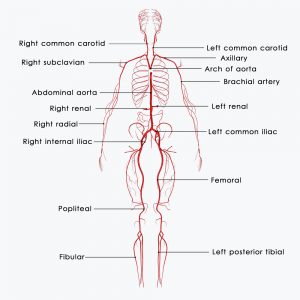 absorb Vitamin B12 (the energy vitamin) without an adequate intake of Vitamin B6.
absorb Vitamin B12 (the energy vitamin) without an adequate intake of Vitamin B6.
- Fights “morning sickness.” Studies are currently ongoing to determine if Vitamin B6 can fight “morning sickness” (nausea and vomiting) among pregnant women. Several studies -- including one that was a double-blind test of the nutrient against a placebo control group -- indicate that it can. But a few studies failed to confirm these results, so research is ongoing. Time will tell.
- Battles depression. Another possible Vitamin B6 benefit currently under review is its value in combating depression. Patients suffering from depression often have low levels of the hormone serotonin, and several antidepressant drugs function by raising serotonin levels in the bloodstream. Vitamin B6 helps the body produce serotonin naturally, so trials are underway to see if B6 supplementation can ease the symptoms of this horrible affliction.
- Eases joint pain. One of the symptoms of the painful disease of arthritis is inflammation of the joints. This inflammation is known to reduce the level of Vitamin B6 in the body, so it is possible that arthritis sufferers require more of this nutrient than other people. Dr. John Ellis (the author of Vitamin B6: The Doctor's Report) reported using 500 milligrams to 2 grams per day of B6 for patients with arthritis and claimed great success.
- Reduces hair loss. One recent study indicated that direct injection of Vitamin B6 was helpful to women experiencing hair loss. According to a Polish medical study published by the National Institutes of Health website, Vitamin B6 injections improved the quality of women’s hair and reduced hair loss.
- Prevents glycation. Glycation is a process whereby sugars bind to proteins without the benefit of an enzyme to control the reaction. This condition gets worse as we get older, and is a primary cause of aging. In cooking, this process is referred to as “browning,” and it is an apt description of the damage of glycation. Our bodies are slowly being cooked to death! The form of B6 called pyridoxal-5-phosphate is one of the best weapons for fighting this insidious process.
- Protects women who are taking birth control pills. B6 levels are known to be reduced in tablet users. Therefore, women currently taking
 birth control pills are urged to ensure adequate B6 levels.
birth control pills are urged to ensure adequate B6 levels.
- Fights the harmful effects of smoking and alcohol. Vitamin B6 will not, of course, provide ironclad protection from these vices. But if you partake in them, at least consider giving yourself a chance at mitigating the damage with B6.
- Saves your vision. B6 performs an integral part in preventing macular degeneration (AMD). Researchers think that this is due to B6's ability to control levels of homocysteine.
How to Make Sure You are Getting Sufficient Amounts of Vitamin B6
Vitamin B6 deficiency is rare, but it does happen among people who have extraordinarily poor diets...and considering the eating habits of so many Americans, that number may be more significant than imagined. However, it is not terribly difficult to obtain vitamin B6 from food. Some of the foods rich in Vitamin B6 are:
- Brown rice
- Bran
- Sunflower seeds
- Wheat germ
- Whole-grain flour
- Meat, including salmon, shrimp, and beef liver
- Dairy: milk and cheese
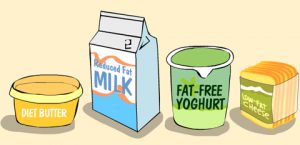
- Beans
- Spinach
- Carrots
- Lentils
- Bananas
- Cabbage
- Celery
- Bell Peppers
- Fortified cereals
But it is challenging for the average person to obtain optimum benefits from this fantastic vitamin by food alone. Consequently, many people add vitamin B6
supplements to their nutrition plan.
Before you add B6 supplements, be sure to discuss this with your physician or another healthcare professional. For adults, the
Recommended Daily Allowance (RDA) of vitamin B6 is 1.3 to 2 mg. Also, since B6 is water-soluble, it should be taken at least twice a day.
How to Tell if You are Vitamin B6 Deficient
The following symptoms are signs that you may be lacking in vitamin B6:
- Sores on the tongue and in the mouth
- Short-term memory loss
- Confusion, and difficulty in concentrating
- Muscle weakness
- Nervousness, irritability, and depression
Possible Side Effects of Excessive Amounts of Vitamin B6
As with anything else, when it comes to vitamin B6 intake, there can be too much of a good thing. Excessive doses of this nutrient have been known to cause nerve damage. Some symptoms that might indicate you’re consuming too much B6 are:
- Numbness in the legs
- Loss of balance
- Allergic reactions of the skin
- Nausea and abdominal pain
- Loss of appetite
- Sensitivity to sunlight
The good news? When the excess intake of Vitamin B6 is stopped, all symptoms usually disappear in less than six months. Also, a B6 overload usually happens only at high doses of more than 1,000 mg per day for several months.
As was mentioned earlier, the B vitamins work together as a team. Therefore, it is not recommended to take B6 only.
If you take the entire B complex, it will  allow the B vitamins to work together in synergy, which will deliver health benefits to you more magnificent than the sum of the individual B vitamins.
allow the B vitamins to work together in synergy, which will deliver health benefits to you more magnificent than the sum of the individual B vitamins.
Remember this: we are currently living in a “golden age” of health and fitness. Never before in human history has the knowledge and science of health, nutrition, supplemental science, and physical fitness been so widely available as now.
Regardless of your age, current health situation, or level of fitness, the knowledge is there for you to take advantage of. Now is the time to take charge of your diet...your fitness...your supplements...and commit to health, increased energy, and well-being.
Stop existing and start living. And don't overlook the all-important role of vitamin B6!
Contact us for a FREE, no-obligation discussion concerning the benefits of testosterone replacement therapy.
Reference
Contact Us Today For A Free Consultation
Dear Patient,
Once you have completing the above contact form, for security purposes and confirmation, please confirm your information by calling us.
Please call now: 1-800-380-5339.
Welcoming You To Our Clinic, Professor Tom Henderson.

- The Facts About the Sunshine Vitamin — Vitamin D Benefits [Last Updated On: August 1st, 2024] [Originally Added On: June 2nd, 2020]
- Vitamin C, The Essential Vitamin, What You Need To Know About Vitamin C [Last Updated On: January 16th, 2025] [Originally Added On: August 2nd, 2020]
- What You Need To Know About Vitamin E [Last Updated On: January 15th, 2025] [Originally Added On: March 6th, 2021]
- Vitamin D3: The Miracle Vitamin That is so Much More Than a Vitamin [Last Updated On: January 12th, 2025] [Originally Added On: March 11th, 2021]
- Leafy Greens are Medicine for Your Gut [Last Updated On: August 27th, 2024] [Originally Added On: April 23rd, 2021]
- All Praise to the Spud -- the Delicious, Health-Giving Potato, That Is [Last Updated On: July 11th, 2024] [Originally Added On: June 1st, 2021]
- Benefits Of Pyrroloquinoline Qinnone [Last Updated On: October 30th, 2024] [Originally Added On: June 7th, 2021]
- Growth Hormone, Testosterone, and Nutritional Supplements [Last Updated On: January 15th, 2025] [Originally Added On: October 25th, 2021]
- Testosterone and Astaxanthin: The Surprising Link [Last Updated On: January 13th, 2025] [Originally Added On: October 25th, 2021]
- Growth Hormone, Testosterone, and Nutritional Supplements. [Last Updated On: January 11th, 2025] [Originally Added On: October 25th, 2021]
- Testosterone and Vitamin B 12 [Last Updated On: January 13th, 2025] [Originally Added On: October 25th, 2021]
